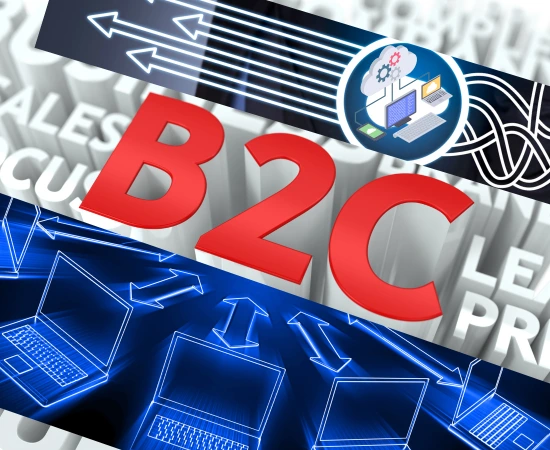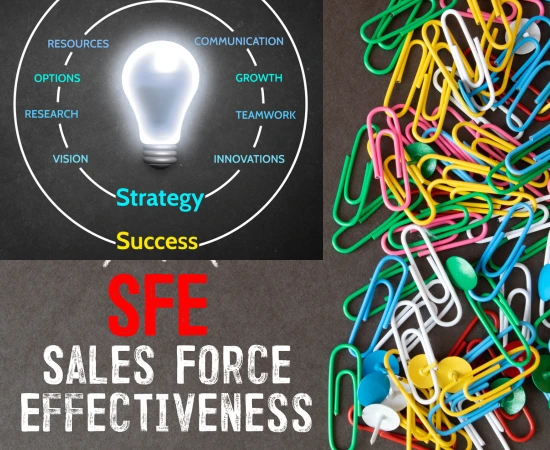In the fiercely competitive digital world of today, companies need to offer smooth, customized online shopping experiences on a variety of platforms. Businesses want strong tools that let them create and oversee an all-encompassing digital commerce solution if they want to stay ahead of the competition and satisfy growing customer expectations. Salesforce B2C Commerce is an eCommerce platform that runs on the cloud and has completely changed how businesses communicate with their customers. We’ll go deep into Salesforce B2C Commerce in this blog, learning about its capabilities, advantages, and ways to improve your digital commerce approach.
What is Salesforce B2C Commerce?
Demandware, formerly known as Salesforce B2C Commerce, is an end-to-end eCommerce platform made specifically for business-to-consumer (B2C) companies. It enables companies to design dynamic, captivating, and highly customized online and mobile purchasing experiences across a range of digital touchpoints, such as social media, mobile apps, and websites. It provides companies with a unified view of their customers by integrating easily with other Salesforce products including Service Cloud, Marketing Cloud, and Customer 360 as part of the Salesforce ecosystem.

Because Salesforce B2C Commerce is cloud-based, companies don’t have to bother about infrastructure. Rather, they can concentrate on creating and overseeing their stores, with Salesforce handling the scalability, security, and upkeep. Salesforce B2C Commerce’s wealth of capabilities, integrated artificial intelligence (AI), and flexibility enable brands to provide individualized, rich, and dependable purchasing experiences.
Key Features of Salesforce B2C Commerce

- Tailored retail encounters
The foundation of the contemporary eCommerce experience is personalization. Salesforce Einstein-powered AI-driven algorithms are used by Salesforce B2C Commerce to deliver customized content, targeted promotions, and personalized product suggestions to each individual customer. With this level of customisation, the appropriate message is sent to the right client at the right time, increasing engagement and driving higher conversion rates. - Flowing Through Omnichannel Experiences
Customers want the same experience whether they purchase in-person, on a mobile app, or on a website. Businesses may provide a smooth omnichannel experience to customers by using Salesforce B2C Commerce, which makes it possible for customers to travel between digital touchpoints without difficulty. Integrated order processing and inventory management enable customers to shop online, pick up in-store, or have products delivered right to their homes. - A mobile-first strategy
Mobile commerce is a crucial part of any contemporary eCommerce plan. With a focus on mobile first design, Salesforce B2C Commerce enables companies to build responsive and mobile-friendly shops. Progressive Web Apps (PWAs), which provide app-like experiences on mobile browsers without requiring the download of a native app, are also supported by the platform. - AI-Powered Search and Merchandising
Salesforce By using AI to optimize product merchandising, B2C commerce makes sure that the most relevant products are shown to customers based on their browsing habits, preferences, and past data. To further improve the user experience, the platform also has AI-powered search capabilities that assists customers in finding what they’re looking for fast and effectively. - Worldwide Scalability
Salesforce B2C Commerce’s worldwide scalability is one of its best qualities. Companies can effortlessly oversee several websites in various languages and geographical locations, guaranteeing a unified brand experience while accommodating regional inclinations. The platform facilitates the seamless expansion of enterprises worldwide by supporting a multitude of currencies, languages, and tax systems. - Simplified Order Processing
B2C Salesforce By integrating with Salesforce Order Management, Commerce provides a consolidated view of orders placed across all channels. Businesses can effectively handle orders, returns, and inventories through a variety of channels thanks to this. Because of the platform’s versatility, customers can track their orders in real-time and receive full visibility into their order progress, which improves their shopping experience.7. - Comprehensive Analytics and Reporting Thorough Analytics and Reporting Improving the customer journey and boosting revenue require data-driven decision-making. Businesses may track key performance indicators (KPIs) like conversion rates, average order value, and customer lifetime value by using Salesforce B2C Commerce’s robust analytics and reporting features. Enhancing product offers, marketing strategies, and overall business success can all be accomplished with the use of this data.
The Benefits of Using Salesforce B2C Commerce

- Enhanced Interaction with Customers
One of the most potent aspects of Salesforce B2C Commerce is the ability to customize every element of the purchasing experience. Businesses can use AI to generate customized product recommendations, give focused promotions, and deliver content based on user preferences. This promotes repeat business and raises consumer involvement. - Improved Client Relationship
Businesses can provide a smooth and uniform shopping experience across all platforms, including mobile, online, and in-store, using Salesforce B2C Commerce. Customers are guaranteed a seamless experience from exploration to purchase and beyond with this omnichannel approach. Overall client satisfaction is increased by features like order management systems that are efficient, integrated payment gateways, and mobile-optimized stores. - Flexibility and Scalability
The cloud-based infrastructure of Salesforce B2C Commerce provides unmatched scalability. The platform may expand to accommodate your company’s needs, whether you’re in charge of a single store or a global network of eCommerce websites. Regardless of the size or complexity of your business, you can effortlessly manage items, pricing, and promotions because to its adaptability. - Quicker Turnaround Time
Salesforce B2C Commerce helps companies launch their storefronts faster by providing pre-built interfaces, templates, and industry-specific solutions. Teams may also more easily design bespoke features and interface with third-party systems because to the platform’s comprehensive developer tools and APIs. Time-to-market is shortened by this agility, which enables companies to react swiftly to shifting market conditions. - Data-Driven Analytics: Actionable Insights
Salesforce B2C Commerce furnishes enterprises with formidable analytical instruments that proffer pragmatic discernments concerning consumer conduct, sales patterns, and promotional outcomes. These insights help companies make data-driven decisions that spur growth, improve marketing tactics, and streamline operations. - Salesforce Ecosystem Integration
B2C Salesforce Salesforce Commerce is a component of the broader Salesforce ecosystem, which also includes Salesforce Customer 360, Marketing Cloud, and Service Cloud. Through this integration, companies may provide a more unified and tailored customer experience by having a consolidated perspective of their clientele. Businesses may react swiftly to client needs by aggregating and analyzing customer data from multiple touchpoints in real-time.
How Businesses Are Empowered by Salesforce B2C Commerce
Salesforce B2C Commerce is made to work with companies of all sizes, from start-ups to major corporations. The following are some ways that the platform can help businesses:

- Creating Tailored Customer Experiences
Businesses may use Salesforce B2C Commerce to build customized customer journeys by utilizing AI to evaluate client data, suggest products that are pertinent, and send out focused marketing communications. This encourages greater client engagement and helps forge better relationships with them. - Bringing the Omnichannel Experience Together
Salesforce B2C Commerce lets businesses create a cohesive omnichannel experience by combining online and offline channels. Customers’ experience is the same and smooth whether they are buying in-person, online, or through a mobile app. This raises general satisfaction and fosters client loyalty. - Improving Advertising Initiatives
Salesforce Marketing Cloud and Salesforce B2C Commerce combine to enable companies to run tailored, data-driven marketing campaigns using a variety of media. Businesses may create highly targeted advertisements that connect with their audience and increase conversion rates by having access to specific customer data. - Encouragement of Worldwide Development
Salesforce B2C Commerce offers the resources required to handle worldwide operations for companies wishing to grow abroad. Thanks to the platform’s ability to support many languages, currencies, and tax laws, businesses can provide localized experiences without sacrificing their brand identity.
True Stories of Achievement in Real Life
Salesforce B2C Commerce has been effectively deployed by numerous international brands to improve their digital commerce strategy. Several real-world instances are as follows:
- Puma: Using Salesforce B2C Commerce, the international sportswear company created an omnichannel shopping experience that connected its online and physical locations. As a result, Puma was able to provide services like click-and-collect and real-time inventory changes, which raised sales and enhanced consumer satisfaction.
- Coca-Cola: Coca-Cola used Salesforce B2C Commerce to develop a mobile-first, tailored online shopping experience for consumers purchasing items and drinks. Because of the platform’s scalability, Coca-Cola was able to efficiently manage large amounts of traffic and streamline its global eCommerce operations.
In summary
With Salesforce B2C Commerce, organizations can offer smooth, customized, and omnichannel purchasing experiences thanks to a dependable, scalable, and adaptable eCommerce platform. Businesses may develop a single view of the customer by integrating with the larger Salesforce ecosystem, which will improve marketing, improve customer service, and spur growth. Businesses can remain competitive in the quickly changing digital marketplace by utilizing Salesforce B2C Commerce’s AI-powered tools, mobile-first strategy, and extensive analytics capabilities.
Salesforce B2C Commerce provides the resources and adaptability required for businesses of all sizes, including startups and established ones, to thrive in the current digital-first environment.
What is the difference between Salesforce B2C Commerce and B2B Commerce?
Salesforce B2C Commerce prioritizes mobile-first design, multichannel strategy, and personalized shopping experiences for companies that sell directly to individual customers. Salesforce B2B Commerce, on the other hand, serves companies that sell to other companies. Bulk ordering capabilities, intricate product catalogs, and account-based pricing are highlighted. B2B commerce is designed for business-to-business transactions, whereas B2C commerce is focused on the customer.
How does Salesforce B2C Commerce integrate with other Salesforce products?
Salesforce B2C Commerce exhibits seamless integration with other Salesforce products, including Salesforce Customer 360, Marketing Cloud, and Service Cloud. Through this connection, companies may combine consumer information from several touchpoints to provide a complete picture of the customer journey. Businesses may leverage data-driven insights to make better decisions, optimize customer service, and personalize marketing campaigns with the aid of this interface.
Is Salesforce B2C Commerce scalable for growing businesses?
In fact, Salesforce B2C Commerce offers great scalability. Its cloud-based architecture allows it to manage growing user populations, a growing product catalog, and high transaction volumes. Salesforce B2C Commerce facilitates business growth by enabling companies to manage many storefronts, regions, and languages without sacrificing performance, regardless of their size.
What AI features does Salesforce B2C Commerce offer?
The AI engine of the platform, Salesforce Einstein, is used by Salesforce B2C Commerce to deliver AI-powered functionality. These consist of dynamic pricing, computerized merchandising, predictive sorting, and personalized product recommendations. Artificial intelligence (AI)-powered search makes it easier for customers to identify products, and intelligent analytics gives organizations information to maximize sales tactics and enhance the customer experience.
Can Salesforce B2C Commerce support multiple regions and currencies?
Indeed, Salesforce B2C Commerce is designed to facilitate international e-commerce activities. It facilitates the management of numerous storefronts by enterprises in various locations, supporting multiple currencies, languages, and tax systems. Effective international expansion is made possible by this global scalability, which guarantees that companies may localize their offerings while preserving a consistent brand experience across geographies.


[…] for increasing income and clientele. But, producing quality leads in the business-to-business (B2C) market has different difficulties than in the B2B sector. The fundamentals of B2C lead generation, […]
[…] eCommerce business insurance in this in-depth guide, along with its definition, benefits, and methods of implementation. We will also evaluate many top insurers operating in India and around the […]